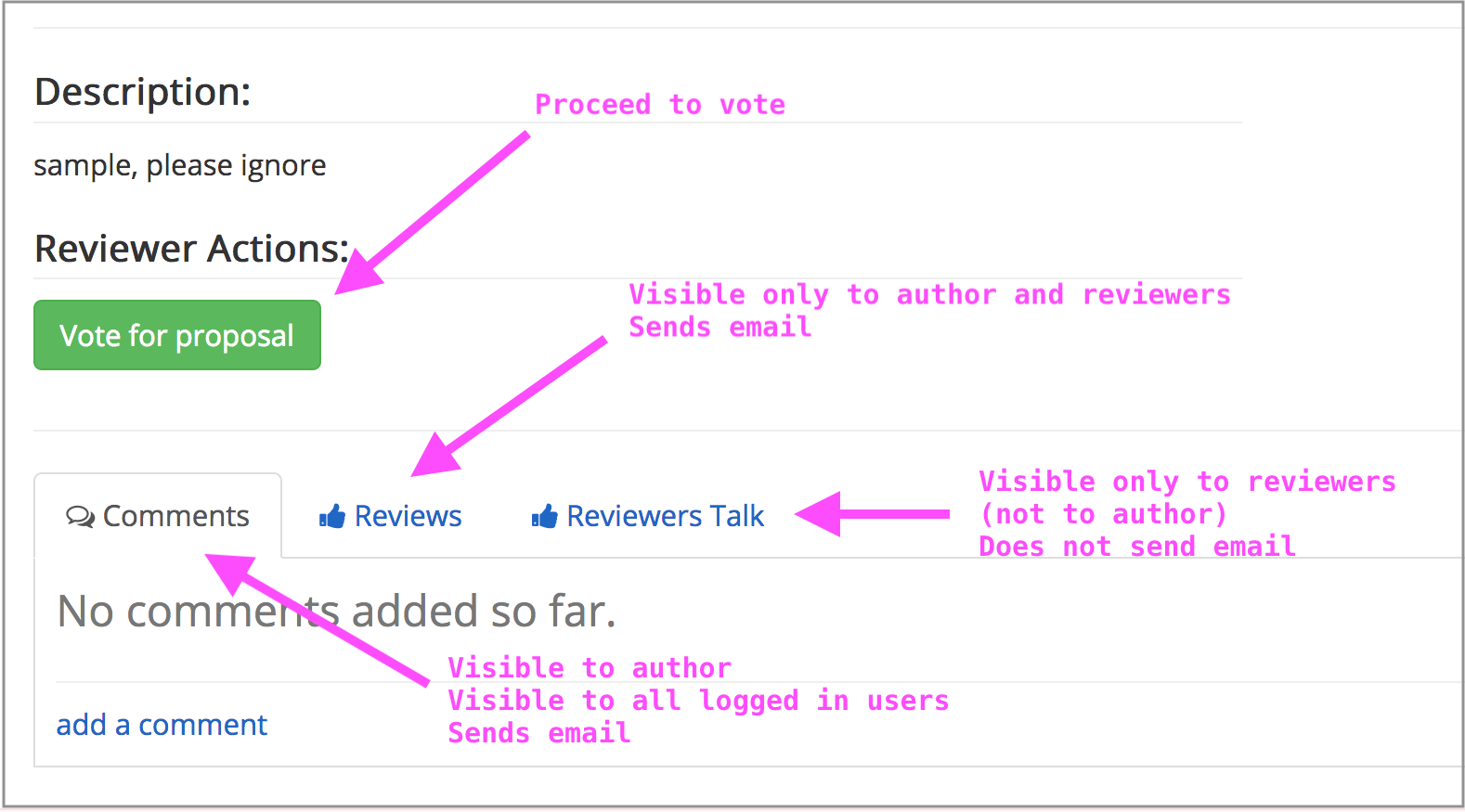-
Notifications
You must be signed in to change notification settings - Fork 192
CFP Reviewer best practices
This document is intended for CFP reviewers at PyCon India.
CFP reviewers review the talks submitted at PyCon India, and also cast votes on them. The final list of selected talks is based on these votes.
CFP reviewers, being experts in their domains, should evaluate talk proposals on the basis on technical depth. They should also look at present-ability, i.e, whether the proposal is suitable to be a conference talk.
- Volunteers will setup an reviewer accounts. These accounts are authorized for certain categories alone (See The categories section below)
- To see all the proposals that you can review, head to this page. Volunteers may also suggest proposals that are ready for review.
- Prefer reviewing proposals that are more ready first. These proposals contain sufficient details, including the slides too. See about the Phases-1 in The full review process section below.
- Feel free to ask for details/clarifications by using comments. See The Comments section below.
- Proceed to vote when you're satisfied that the content is sufficient. There are six voting levels, each with a different weight.
- Please add a meaningful comment while voting. In case of a tie, we'll use these comments to compare.
- Please avoid using the most negative vote (-2) too often. It should be used only for talks that may be damaging to the conference.
There are three kinds of comments - the Comments, the Reviews, and the Reviewers Talk.
Comments can be seen by the author, and everyone else too. An email is also sent.
Reviews can be seen by the author only. And an email is also sent).
Reviewers Talk is not seen by authors, and can be used to leave notes for other reviewers.
Best is to use Reviews
Reviewers are assigned to specific categories (like Core-Python, Machine Learning etc), and therefore they are authorized to review only the talks in their categories.
To see all the talks a specific category, the corresponding name can be clicked on the listing page right below the talk titles.
Examples: Core-Python, Web development
The review process comprises of three phases:
Conducted by: the volunteers of the CFP workgroup.
Aim: Complete and detailed proposals. Volunteers work with the authors to make sure proposals are complete in all respects.
Finishes when: the proposal has sufficient details, outline and the slides.
Conducted by: the CFP reviewers (who are technical experts in certain domains)
Aim: Review the proposals on technical merits, and vote on them
Finishes when: the CFP reviewer votes on the proposal
Conducted by: the volunteers of the CFP workgroup
Aim: make sure talks are ready for stage
Finishes when: the speaker presents the talk before the workgroup
The reviewers names will be kept secret, especially from the authors. This is to make sure there is no undue influence on the reviewers. The reviewers will be thanked and felicitated after the CFP process completes. Please don't reveal your identity to the authors.
Reviewers are not supposed to be submitting talk proposals themselves. They should also keep themselves free from any conflicts of interests - by not reviewing talks from their friends and colleagues.
PyCon India's code of conduct applies to the reviewers.
Contact the CFP team at cfp@in.pycon.org, or on Gitter chat


